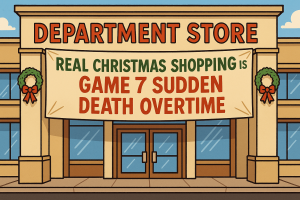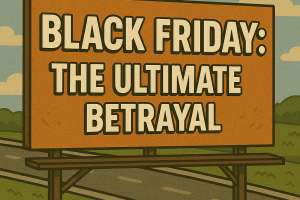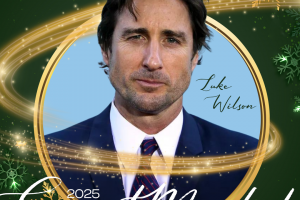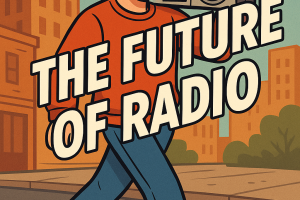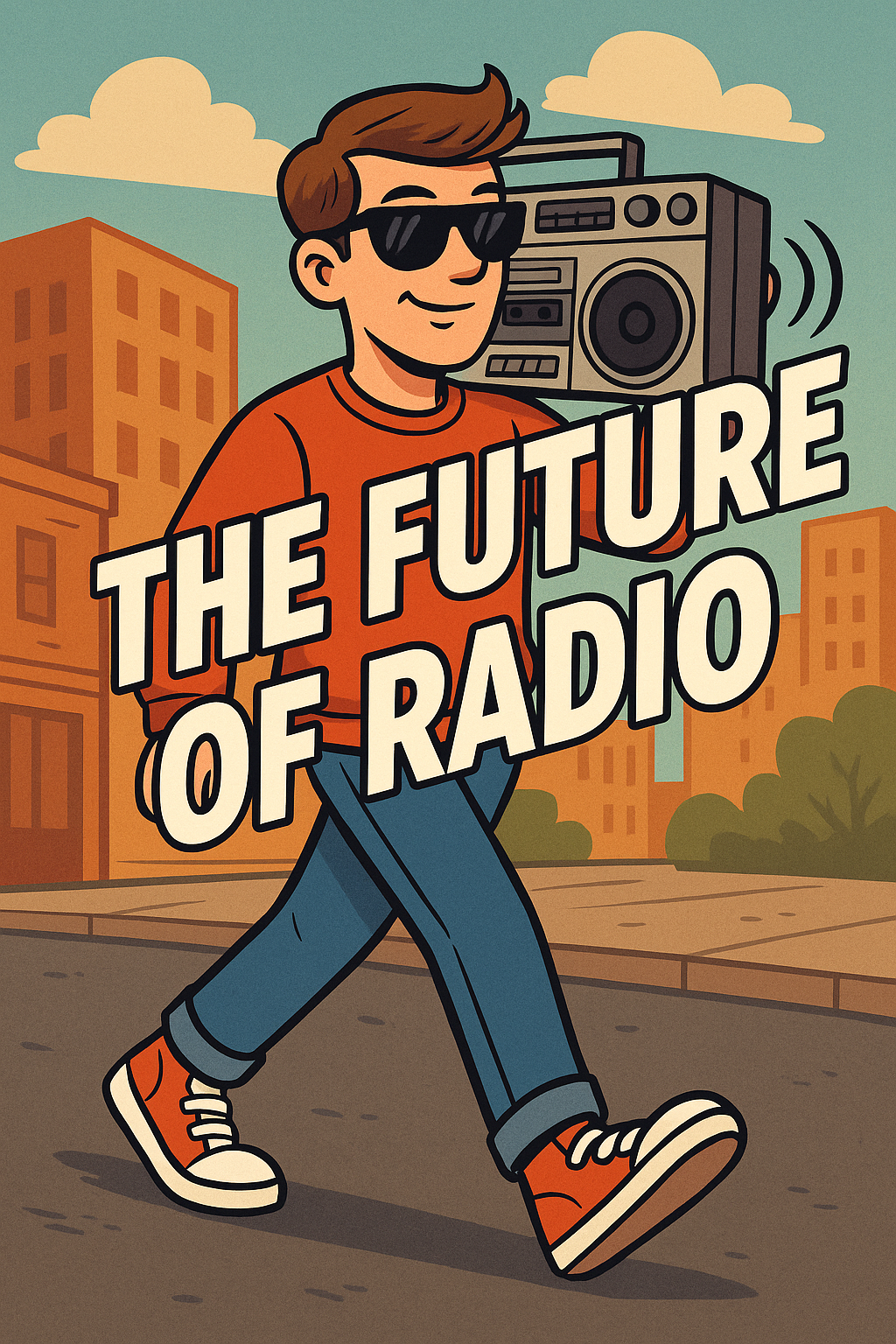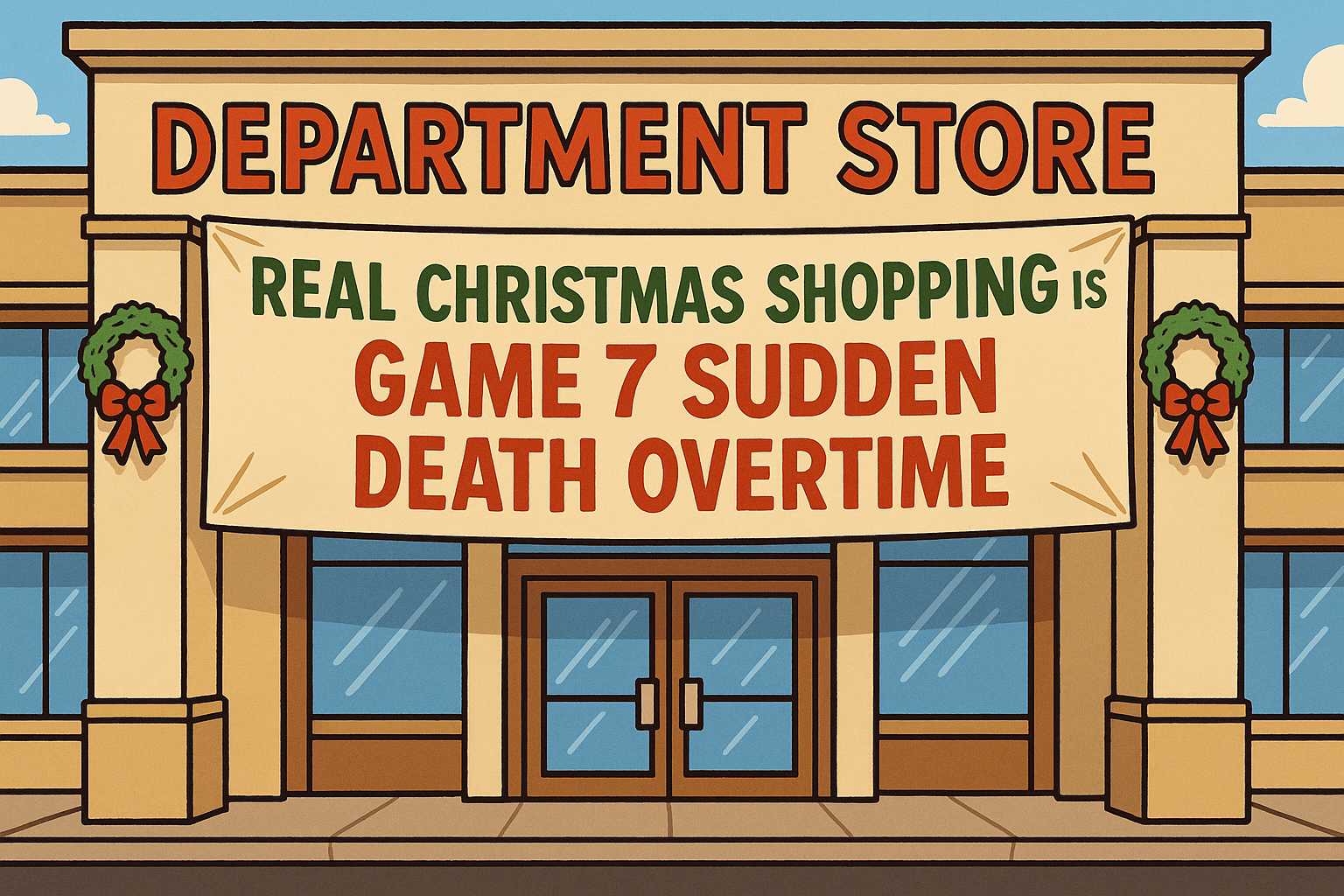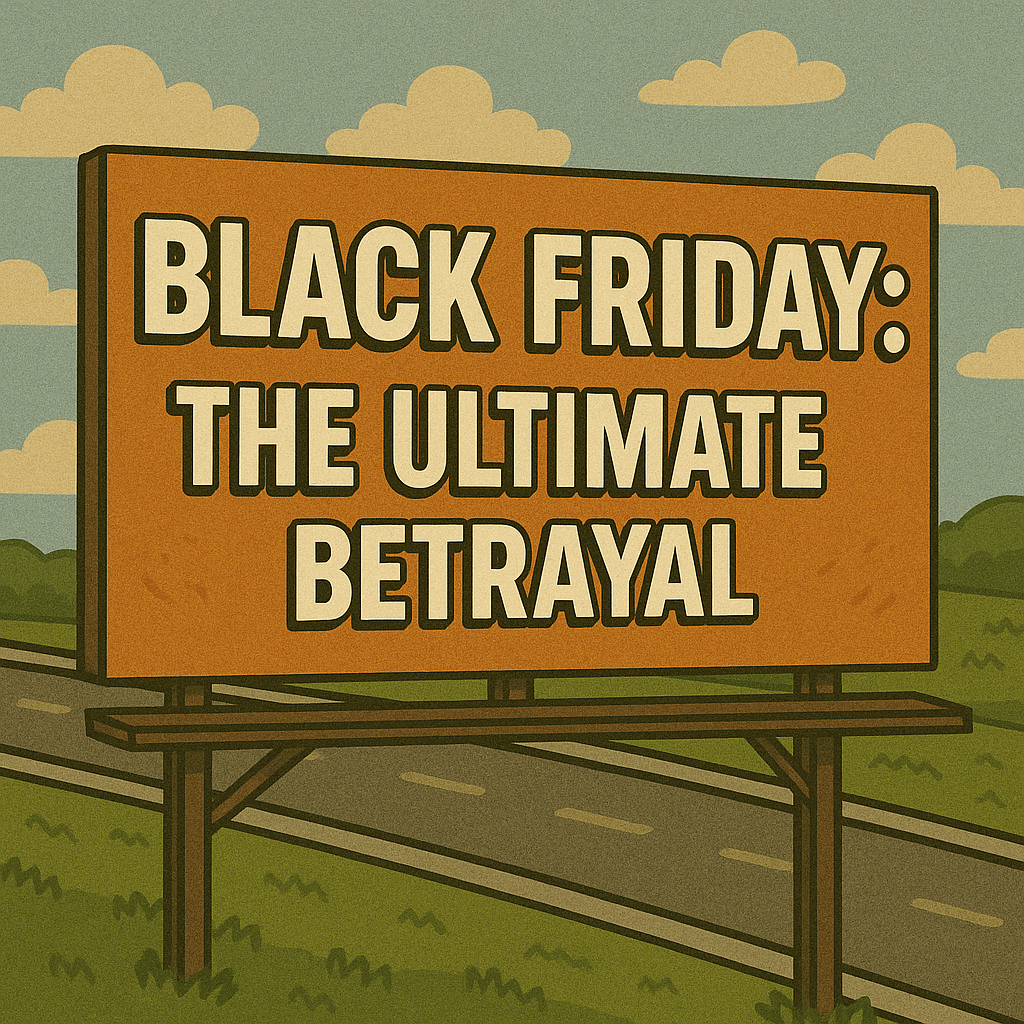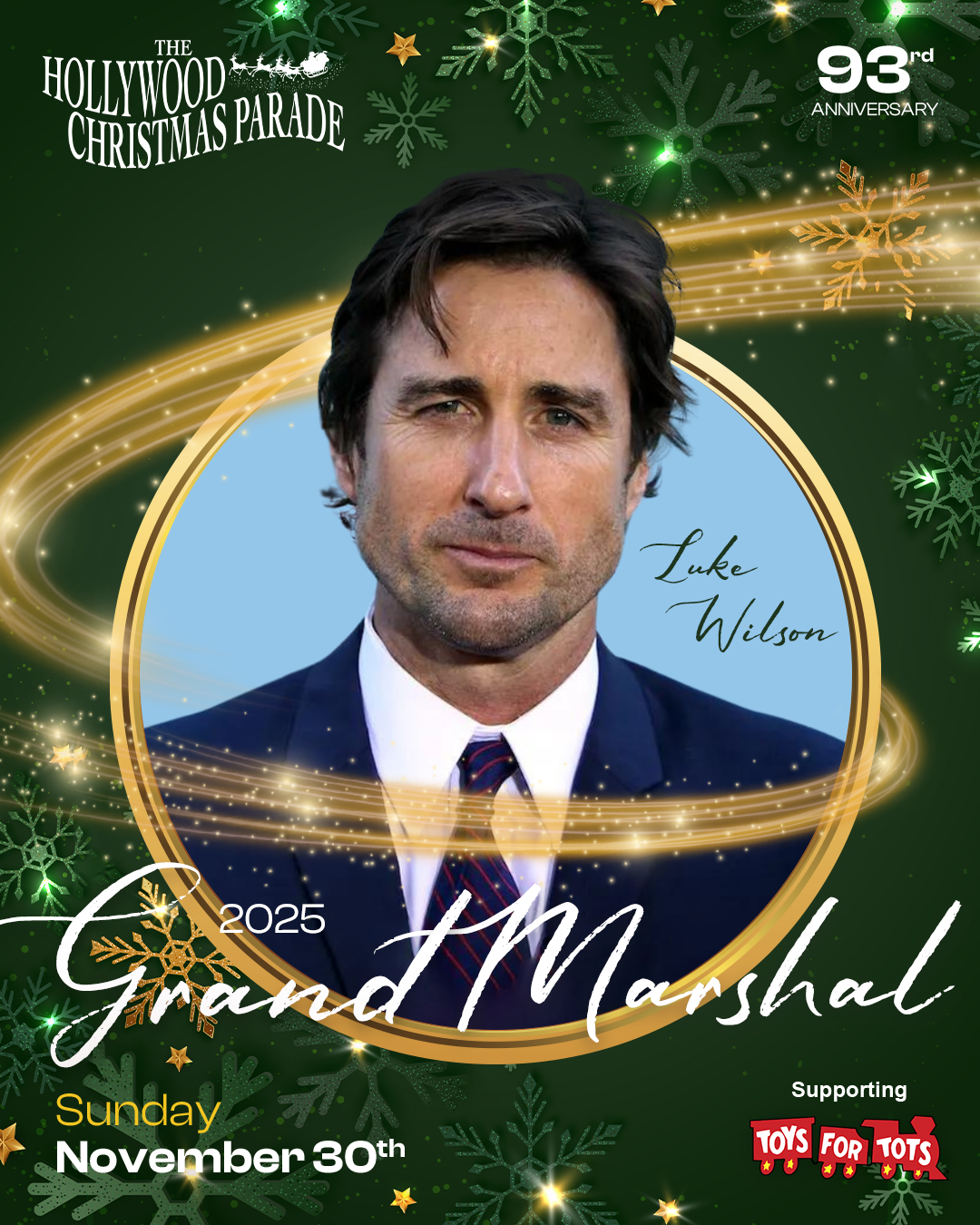The Future of Radio – Ultimate Debate 1: Reinvent Yourself, Think Outside the Box, and Other Spectacular Myths of the Corporate Airwaves
Satire Disclaimer
The following is a work of commentary and satire inspired by real industry trends on the future of radio. The opinions belong to a radio veteran with 35 years in the business—and the fictional friends who’ve heard one too many buzzwords over the years.
The contribution from every single boss I’ve ever had was usually to just toss out another one of those classic corporate “we don’t know what we’re doing, but we hope it sounds like we do” slogans.
They’d throw catchphrases at the wall, pray something magically stuck, and when it didn’t? Guess who got the blame—and the ax.
I spent 35 years in radio broadcasting. Long enough to splice reel-to-reel tape, cue up carts, and hear at least a thousand different managers tell me I needed to reinvent myself.
They’d lean against the console with that look of executive enlightenment and preach on the future of radio “You’ve gotta think outside the box.”
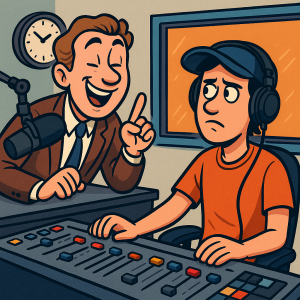
Then they’d walk away, leaving you wondering where the box was, what was in it, and how much longer they’d be in charge of it.
That’s what’s broken about the future of radio—it’s not the audience, it’s the leadership.
The people running the show still believe they can compete with Spotify by playing “40 minutes of commercial-free music,” as if repeating a 1990s tactic is somehow going to outsmart a smartphone.
Meanwhile, listeners have millions of songs in their pockets, no commercials, and the ability to skip anything that doesn’t immediately fit their mood.
Radio isn’t about music anymore—it’s about choice. And every listener already holds more choices in the palm of their hand than a station can offer in an entire hour.
But inside the meeting rooms, the same slogans get recycled like stale jingles:
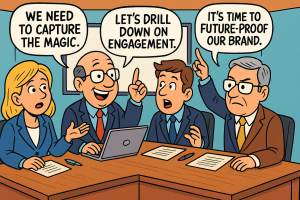
Translation? We don’t know what we’re doing, but we desperately want you to think we do.
Somewhere along the line, radio stopped being creative and started being corporate.
Instead of talking to the audience, we started talking to spreadsheets.
We learned how to monetize engagement, weaponize nostalgia, and leverage synergy, whatever the hell that means. I’ll give them this much: those words somehow manage to sound powerful and empty at the same time.
Theater of the mind used to mean imagination. Now it means pretending there’s still an audience at 3 a.m. on a Sunday shift.
If the bosses really wanted to think outside the box, they’d realize the box is now a smartphone—and the audience is already holding it.
Cornelius: When I was your age, radio was the future! We had personality. We had theater of the mind. We didn’t need to monetize the conversation—we were the conversation!
Nova: Corny Baby, you keep saying ‘theater of the mind’ like it’s a Marvel movie. The future of radio isn’t imagination—it’s AI DJs who flirt with your GPS.
Polly: I once had a manager say we needed to ‘weaponize relatability.’ I thought we were doing a morning show, not starting a psychological operation.
Sandy: And when they say ‘reinvent yourself,’ they mean ‘do the same thing with a different voice and half the budget.’ Maybe the future of radio is finally admitting we ran out of boxes to think outside of.
Cornelius: The future of radio is everything that made theater of the mind great. Sound effects, characters, creative content! We called it entertaining an audience.
Nova: And now we’ve got sound effects, characters, and creativity—on YouTube. For free. Without commercials.
Polly: You know what radio really needs? A personality transfusion. Bring back hosts who actually talk to people, not at them. The future of radio isn’t about the next song—it’s about the next sentence.
Sandy: Exactly. Let the hosts be human again. People don’t want playlists—they want presence. The future of radio is to weaponize authenticity.
Wacky Benny (bursting in): Wait, wait, wait nobody move!
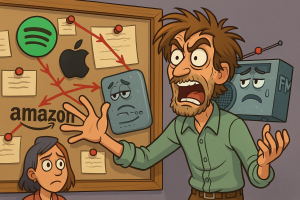
Radio isn’t dead. It’s being killed. You think it’s a coincidence every streaming app gives you three free months?
Spotify, Apple, Amazon—they’re all in cahoots. They’re weaponizing silence. They want to erase FM from human memory!
Nova: Benny, did you skip your Bluetooth detox again?
Sandy: No, let him finish. I haven’t heard a good conspiracy since that thing they were throwing around about acetaminophen.
Benny (ranting on): Follow the Bluetooth money! The smartphone industry benefits from killing radio. Every time your car auto-connects, another DJ vanishes into the algorithm. That’s not progress—that’s a digital coup!
Sandy: Anybody taking notes? This would be a great entertaining conversation to have on—I don’t know—the radio!
Polly: So, what—you think Siri’s running Central Command now?
Benny (leaning in, whispering): I’m not saying it’s Siri. I’m saying it’s the same people who invented buffering.
Here’s the funny thing about the future of radio.
As crazy as Benny sounds, he’s not entirely wrong. Maybe the future of radio isn’t being killed by one company, but by a thousand little conveniences we can’t imagine living without.
The real assassin isn’t a person. It’s progress.
And that’s the irony of the future of radio—the same executives who tell everyone to “reinvent themselves” refuse to reinvent the product.
They hold brainstorming sessions to “drill down on synergy” while the audience has already tuned out.
The magic formula isn’t complicated.
Stop playing buzzword bingo.
Let radio be what it’s always been at its best:
real people talking to real people about real life.
And here’s the part that drives me nuts: radio executives keep saying there’s “nothing left to talk about” unless it’s politics or sports.
Really?
I can come up with dozens of topics off the top of my head—and none of them involve touchdowns or blowhards.
Watch this:
“The Things We Pretend to Like” – coffee trends, group texts, small talk at work.
“Pet Peeves Anonymous” – callers confess everyday annoyances.
“Unpopular Opinions Hour” – harmless, funny hot takes.
“What Did You Google Today?” – weird searches of the week.
“Texting Gone Wrong” – embarrassing misfires.
“The Five-Dollar Fix” – cheap home or kitchen hacks.
“Weekend Warriors” – what listeners are building or cooking.
“DIY Disasters” – project fails.
“Flavor on a Budget” – recipe swaps and kitchen shortcuts.
“Clever or Crazy?” – hosts debate viral hacks.
“Tech Wreck Tuesday” – autocorrect fails, spam calls, password rage.
“AI for the Average Joe” – simple tools anyone can use.
“Digital Detox Diaries” – stories from unplugged listeners.
“App of the Week” – quick reviews.
“Tech Nostalgia” – pagers, mixtapes, dial-up memories.
“Love on the Line” – modern romance stories.
“Parent Traps” – parenting wins & fails.
“Relationship Myths” – debunking bad advice.
“Modern Manners” – etiquette debates.
“Dating App Disasters” – hilarious nightmare dates.
“Stream or Skip” – quick reviews of free streaming content.
“The Viral Video Breakdown” – trending clips explained.
“The Celebrity Hypothetical” – absurd scenarios.
“The Nostalgia Rewind” – throwback TV and movies.
“Weekend Freebies” – free local events.
“Local Legends” – talk to interesting locals.
“Small Business Shout-Out” – restaurant or shop features.
“Hometown Mysteries” – strange local stories.
“The Great Debate” – silly arguments.
“The Big What-If” – playful hypotheticals.
“Conspiracy or Coincidence?” – minor conspiracies (Wacky Benny heaven).
“This Week in Malarkey” – absurd headlines.
“Mind Over Malarkey” – humorous mental health chats.
“Eat, Move, Laugh” – lifestyle micro-tips.
“The Nap Report” – where people accidentally fell asleep.
“What’s Your Opinion On This?” – a daily mini-poll.
“You Be the Judge” – settle small disputes.
“Confession Friday” – harmless secrets.
“The Great Listener Debate” – Jason Bourne versus John Wick who wins that fight and other wars.
“Behind the Buzz” – how ads and slogans are made.
“Algorithm Anxiety” – what social media is doing to us.
“Streaming Wars” – modern media chaos explained.
If radio wants a future, it doesn’t need another consultant shouting “think outside the box.”
It needs to remember who it’s talking to—
and start talking again.
The future of radio is anything and everything you can think of. It’s anything and everything you’ve ever talked about. It’s anything and everything because that’s what real life is.
The future of radio is also theater of the mind because theater of the mind still works.
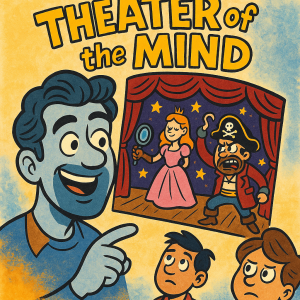
If you’ve got a voice worth listening to.

Mike worked in the radio industry for 35 years which means sarcastic, tongue-in-cheek, satirical, trash talking characters to remind you laughter is good for the soul! Let’s have some fun with entertainment, movies and TV, sports, budget food and games, lifestyle and we’ll get ridiculous.



